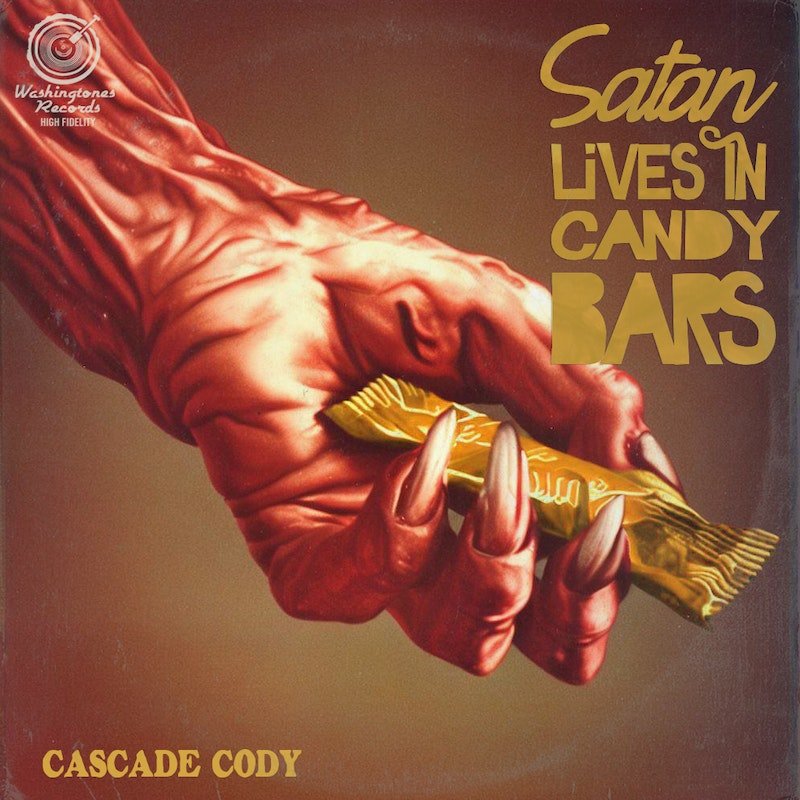REVIEW: For Your Trick or Treat Haul, Here’s Cascade Cody’s “Satan Lives in Candy Bars”
OOKY SPOOKY!
Well, not exactly, but it’s still quite a treat. Courtesy of Bellingham’s Washingtones Records, Cascade Cody’s Satan Lives in Candy Bars is a folk EP (the artist in question, based in Yakima, uses “cascade folk”) that pays homage to the very ooky spooky cassette tapes of yore [read: the last fifth of the 20th century]. You know, the ones that are usually all orange, and have little black bats and spiderwebs on them, and that you’d play outside on your front lawn with the rest of your decorations to try and scare the poop out of the trick-or-treaters? This is not that, but it is Halloween music, and that makes it kind of a rarity.
Satan Lives in Candy Bars is a six-track clinic of classic Halloween tropes filtered through Cascade Cody’s approach to folk music, which prioritizes structured narratives and a refrain here and there. The record, with contributions by labelmate Tim Mechling, is filled with atmospheric touches; some are instrumental, like the harpsichord flourishes on “Charnel House Blues” while others resemble production tricks, like the low fidelity tape effect on “Halloween Song”). They never overshadow Cody’s sturdy songs, which bounce across eras of American history. The moods vary, ranging from lighter fare (the charming “Halloween Song” or the campy title track, on which Cody embodies a rabid preacher) to songs more morbid, even haunting (the monstrous origin story of “Hockett” and the moving “In the Gentle Breeze”). All of these tracks, and the tricks that grace them, are anchored by Cody’s crisp timbre, as his voice shudders and shivers over the high notes.
Holiday music in general is a retrospective genre, because it’s based in tradition. Most every artist you know currently indulges in retrospection in some form or another, and nostalgia is a still a robust industry, but holiday music has the most leeway to return to warped memories of the past. In that way, Satan Lives in Candy Bars succeeds as an ode to perhaps the most universally beloved American tradition still standing today. It might not make you look over your shoulder, but it might make you look backward anyway.

